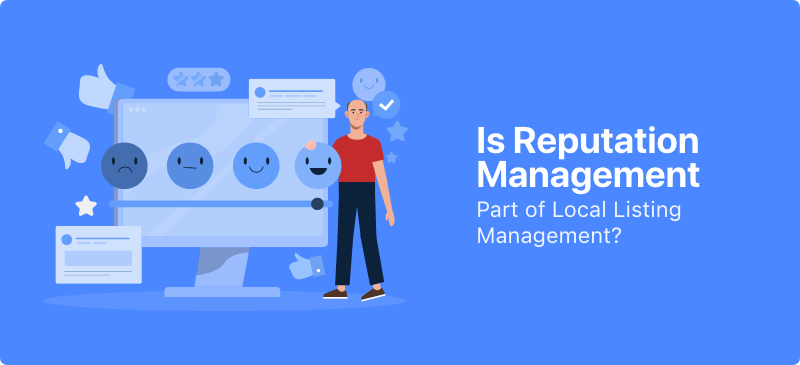Being easily discoverable online is critical for local businesses. Potential customers often turn to search engines, maps apps, and even AI-powered assistants to find nearby services, restaurants, or shops. But simply having a business website isn't enough. How accurate and consistent your business information is across the web can make or break your visibility.
That's where local listing management comes in. By carefully creating, updating, and monitoring your business listings on directories, review sites, and mapping platforms, you ensure that customers and search engines alike can find, trust, and engage with your business. In this guide, we'll explore what local listing management is, why it matters for SEO, and how it now intersects with AI-driven search (spoiler: it's more important than ever).
What Is Local Listing Management?
Local listing management is the practice of creating and maintaining accurate business information on online platforms, directories, and review sites. This ensures your business appears correctly for local searches and builds trust with both users and search engines.
Key platforms include:
-
Google Business Profile
-
Yelp
-
Bing Places for Business
-
Facebook Business Pages
-
Apple Maps
-
Tripadvisor
-
Yellow Pages
-
Foursquare
-
Angie's List
-
Better Business Bureau (BBB)
-
MapQuest
-
LinkedIn Business Directory
-
Manta
-
Hotfrog
-
CitySearch
-
Superpages
-
Chamber of Commerce Directories
Maintaining accurate, consistent information across these local business listing sites is critical for local SEO success.

How Local Listing Management Impacts SEO
Local listings create local citations, which are mentions of your business name, address, and phone number (NAP) on directories and review sites. These citations help search engines:
-
Verify your business's existence
-
Confirm its relevance to local searches
-
Build trust and credibility online
While the weight of local citations has shifted over the years, curated listings on reputable platforms still contribute to local visibility in traditional search.
Tip: Focus on high-authority, relevant sites. Spamming low-quality directories no longer boosts rankings.
Beyond that, building high-quality citations can also improve your chances of appearing in AI-driven search results. Tools like Google's AI Overviews, AI Mode, Gemini, ChatGPT, and other AI assistants prioritize information from verified, authoritative sources, including reputable local business listing platforms. Businesses with missing or inconsistent listings risk being overlooked or misrepresented in AI responses, while those with optimized, up-to-date listings are more likely to be mentioned and even directly recommended to potential customers.
Additionally, AI-driven search tools increasingly draw from local business listings other than Google Business Profile to provide answers. For example, ChatGPT gets it's local business info directly from Bing Places for Business (which also pulls reviews in from other directories like Yelp and Tripadvisor). So, while GBP is still a major driver of local search traffic, accurate and complete listings on alternative platforms can now affect:
-
AI visibility: AI answers often pull from verified sources like Bing Places for Business, Yelp, and Tripadvisor.
-
Featured mentions for local queries: Well-maintained listings improve the chance of being cited and recommended in AI-generated overviews and responses.
-
Voice search results: Mobile and smart device voice assistants rely on various listings to give recommendations.
This means that SEO listing management is no longer just about ranking on Google Maps or Search. It's also about being discoverable by the AI-powered tools that potential customers are increasingly using to search for local businesses and information.
Which Listings Matter Most?
It's important to remember that Google Business Profile still dominates local SEO, but other platforms can be important depending on your audience and goals.
-
Google Maps/GBP: Critical for most local searches and AI visibility within Google's ecosystem.
-
Apple Maps: Increasingly relevant, especially for capturing traffic from iOS users.
-
High-traffic review platforms (Yelp, Tripadvisor): Influence both user choice and AI-powered recommendations.
Focus first on high-impact platforms, then maintain consistency across secondary listings.
Is Reputation Management Part of Local Listing Management?

Many listing sites include reviews, which are a core component of local SEO. Therefore reputation management and local listing management go hand-in-hand. Managing reviews effectively can:
-
Influence purchasing decisions
-
Boost local search rankings
-
Provide insights through sentiment analysis to improve services and local search performance
Let's take a closer look at that last point about sentiment analysis. Collecting reviews (especially on Google Business Profile) as part of your local listing management strategy can provide a wealth of data for AI-driven sentiment analysis.
Using a tool like Local Falcon's AI-powered Reviews Analysis Tool to analyze all your Google reviews at once provides actionable insights into business performance and sentiment trends, which in turn help you optimize services and get better reviews, improving your rankings and local visibility over time.
Wrapping Up
Local listing management remains vital for local SEO, though its role has evolved. Whereas citations used to be one of the main local ranking factors for traditional search, they now have even broader importance, especially in terms of increasing AI search visibility. But gone are the days when tactics like spamming citations across numerous, often low-quality sites were effective. It's now, more than ever, about quality over quantity of listings.
Here are a few things to remember when managing your local listings for SEO:
-
Prioritize Google Business Profile and other high-traffic platforms
-
Maintain accurate NAP and optimized listings across reputable third-party directories
-
Manage reviews and reputation actively
-
Consider AI visibility as a core part of your strategy
With these considerations, businesses can maximize visibility across both traditional and AI search tools, attract more customers, and stay competitive in an increasingly AI-driven local search ecosystem.
FAQs: Local Listing Management
Does managing local listings improve rankings?
Yes. Accurate listings on high-authority directory sites help search engines verify your business and can influence local search rankings.
Are reviews part of listing management?
Absolutely. Reviews on platforms like Google, Apple Maps, Tripadvisor, and Yelp affect both customer trust and local SEO performance.
Do local listings affect AI search results?
Yes. AI-driven search tools often pull from verified local listings to answer queries, making accurate listings essential for AI visibility.
Which local business listing platforms should I focus on first?
Prioritize Google Business Profile, then maintain accuracy on Apple Maps, Yelp, TripAdvisor, Bing Places for Business, and other high-authority directories and review sites relevant to your industry.
How often should I update my local listings?
Regularly (at least quarterly and whenever any business info changes) to ensure information stays accurate, especially for hours, services, or contact details.

